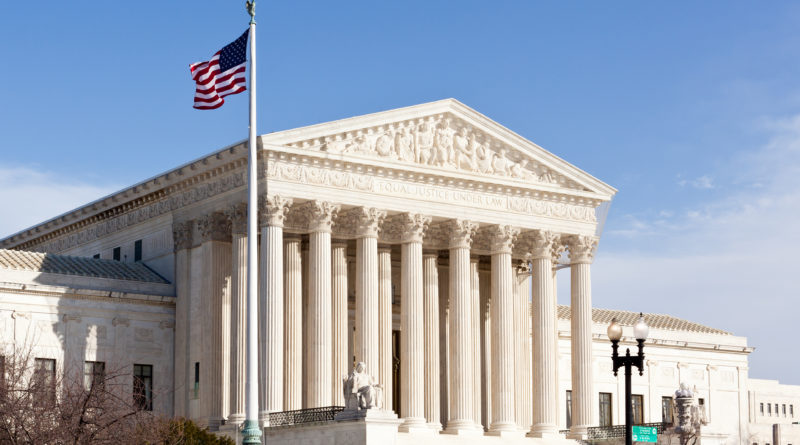Will Trump Appoint a Third Supreme Court Nominee?
12,291 total views, 1 views today
Last week, Justice Ruth Bader Ginsburg passed away at age 87 after a long battle with pancreatic cancer. Senate Majority Leader Mitch McConnell has announced plans to hold a vote on President Trump’s nominee to replace Ginsburg on the Supreme Court with the presidential election around the corner. But will the nominee actually be elected before Election Day?
Ruth Bader Ginsburg’s death and reactions about it
A few days before Ginsburg passed away, she dictated a statement to her granddaughter that her dying wish was that her Supreme Court position not be filled until a new president takes office. Republican Massachusetts Governor Charlie Baker has urged President Trump and the Senate not to nominate or vote on a new justice before Election Day. However, some Republicans including Mitch McConnell, Lindsay Graham (R-SC), and Senator Kelly Loeffler (R-GA) believe a nominee should fill the open Supreme Court seat before the presidential election.
On September 21, President Trump made a baseless claim that Democratic politicians are the ones who wrote Ginsburg’s statement. On the same day, 43 days before the election, McConnell said the Senate had more than enough time to confirm a new Supreme Court justice before Election Day.
What about the last time a Supreme Court justice died during an election year?
When Supreme Court Justice Antonin Scalia died four years ago, McConnell and other Republicans argued that someone should not fill the vacant seat. McConnell’s current support to replace the Supreme Court justice position is a complete contrast to his 2016 stance.
After Scalia’s death, when the presidential election was 200 days away, McConnell refused to open the Senate floor for hearings for President Barack Obama’s nominee, Merrick Garland. McConnell said the timing of Scalia’s death was too close to the election to fill the high court vacancy.
Upon Ginsburg’s death, Democrat Senate Minority Leader Chuck Schumer tweeted that McConnell and other Senate Republicans are attempting to steal two Supreme Court seats four years apart and are contradicting themselves. On September 22, Schumer invoked the “two-hour rule” for the day to constrain Senate committee meetings’ scheduling and duration. However, McConnell has not yet shown any signs of slowing down the Republican party’s quest to fill the opening left in Ginsburg’s wake as soon as possible before Election Day.
Which Republican senators might not vote for Trump’s nominee?
Senator Susan Collins (R-MA) has said she will not support a vote on the eventual nominee before Election Day. On Tuesday, Senator Collins told reporters she believes it’s too close to elections to elect a nominee. She stated her decision is based on being consistent and fair to Americans.
Senator Lisa Murkowski (R-AK) has also said that she is opposed to voting for a nominee before Election Day. Murkowski said in a statement that she did not support a new nominee in 2016 since this time around, it’s even closer to Election Day, and the “same standard must apply.”
What happens next?
President Trump will be meeting five candidates for the position and said on Monday that he plans to announce his choice as soon as Saturday, a day after Ginsburg is scheduled to be put to rest at the U.S. Capitol. Among Trump’s possible candidates are judges Amy Coney Barrett of the United States Court of Appeals for the Seventh Circuit and Barbara Lagoa of the United States Court of Appeals for the Eleventh Circuit.
Senate Majority Leader McConnell and the GOP caucus have prioritized quickly appointing conservative judges. They have implemented the nuclear option to speed up the process, meaning that the Republican-controlled Senate will need only 51 votes to elect a nominee before Election Day. McConnell remains at the helm of the Republican fight for a new Supreme Court justice despite Ruth Bader Ginsburg’s dying wish and the wishes of many others who have opposed finding a new justice before the 2020 election.

